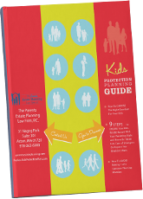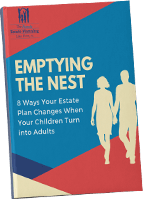People who are nearing the age of 65 should be making plans for the transition from private health care to Medicare.
It is not a simple process or one that happens automatically. You have to initiate the enrollment process at a specific time or suffer a monetary penalty. It is important to understand that applying for Social Security benefits and enrolling in Medicare are two totally different things. Don’t confuse your eligible age for Social Security with the eligible age for Medicare. For Medicare, it is 65; there are no variations based on your date of birth.
Can I Sign Up for Medicare Whenever I
Want?
If you are turning 65 and are not covered under a health insurance plan through your employer or your spouse’s, you must enroll in Medicare during an initial enrollment period (IEP) that applies just to you. The period runs for a seven-month span beginning and ending on either side of your 65th birthday. The fourth month of the period is the month in which you turn 65. That is how you establish your window of opportunity.
If you passed the age of 65 while covered under a plan through your or your spouse’s employment, you have a special enrollment period (SEP). The SEP covers any time before the employment ends, and for eight months thereafter. A word of caution here: employers with less than 20 workers may require employees turning 65 to enroll in Medicare and have the employer plan serve only as a backup insurer.
What If I Missed The Medicare Deadline?
If you failed to enroll during your initial or special period, you must enroll in a general enrollment period (GEP) which is in effect from January 1 to March 31 of each year. In such a case, you will be charged a penalty of 10 percent of the premiums for each full 12-month period after the end of your IEP and the beginning of the GEP.
The good news for some who enroll during a GEP is that they may not have to pay any premiums for Medicare Part A coverage, so there is no penalty to be assessed. If you have contributed Medicare tax while employed for 40 quarters (10 years), you have enough credit to get Part A coverage for free. Part A covers hospital and skilled nursing facility charges. Part B, which covers doctor’s services, outpatient services and medical equipment, always comes with a premium, and an enrollment penalty will be assessed as long as you are in the plan.
While the process can be complicated, these are some of the more important facts people need to know about Medicare enrollment. There are still other factors that may apply to individuals, especially anyone who is disabled and receiving Medicare benefits prior to age 65. As such, contacting the Social Security Administration (or if you need more help, contacting us) well before your 65th birthday is the smart thing to do.
As a Personal Family Lawyer®, I can further advise you on all your options and make things as easy as possible for your family during a Family Wealth Planning Session. If you would like to have a talk about estate planning for your family, call our office today to schedule a time for us to sit down and talk.
To your family’s health, wealth and happiness!
![]()
David Feakes
P.S. Want to get started on the most important planning you’ll ever do for your family? Give our office a call at (978) 263-6900 to get started. You’ll be so glad you did.
David Feakes is the owner of The Parents Estate Planning Law Firm, PC – a law firm for families in the Acton, Massachusetts area. David helps parents protect the people they love the most. Click here to receive David’s exclusive, free report, “Six Major Mistakes To Avoid When Choosing An Estate Planning Attorney,“.












